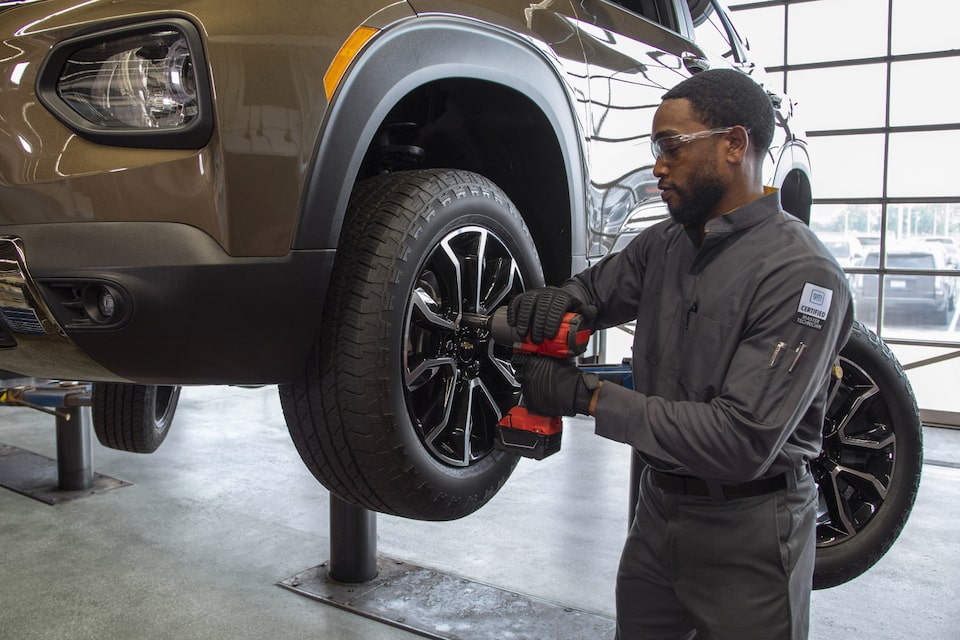Trusted Tire Shop Morris: Comprehensive Tire Solutions and Exceptional Service
Trusted Tire Shop Morris: Comprehensive Tire Solutions and Exceptional Service
Blog Article
Tire Service: The Impact of Weather Conditions
When it comes to making certain optimum performance and safety on the roadway, recognizing the effect of weather on tire solution is important. From scorching heat to icy roadways, each weather condition element can dramatically affect tire performance and total driving experience. By diving into the impacts of varying climate condition on tires, drivers can get important understandings that may boost their automobile's performance and long life. In this discussion, we will certainly check out the complex partnership between weather condition problems and tire service, losing light on the value of weather-specific tire upkeep methods and factors to consider.
Warm and Tire Efficiency
When revealed to high temperatures, tires experience changes in performance that can substantially influence vehicle safety and handling. The heat generated from prolonged driving or warm climate problems creates the tire rubber to soften, leading to lowered step life and raised wear.
Moreover, heats can accelerate the process of tire aging, causing the rubber to weaken quicker. This can lead to fractures, protrudes, and various other forms of damage that jeopardize the architectural honesty of the tire. To minimize the impacts of warm on tire performance, motorists should regularly examine their tire stress, revolve tires to ensure even wear, and inspect for any indicators of damages. In addition, using tires specifically created to stand up to heats can assist preserve optimal efficiency and safety and security when traveling.
Cold Weather Condition Results
Cold weather condition problems can have a substantial impact on tire efficiency and safety and security. As temperatures decline, tire rubber can harden, causing lowered traction on icy or snow-covered roadways. In cool weather condition, tires might likewise shed air pressure extra quickly, which can influence managing and gas performance. Additionally, chilly temperature levels can cause tire sidewalls to stiffen, enhancing the danger of damages from pits or various other roadway hazards.
To reduce the impacts of chilly weather on tires, it is important to consistently inspect tire pressure and inflate them to the manufacturer's suggested levels. Utilizing winter season or all-season tires created for cool climate problems can additionally boost grip and hold on icy or snowy roadways - morris tire and alignment. Appropriate tire upkeep, including routine evaluations for wear and damages, comes to be also a lot more essential throughout chillier months to guarantee optimal performance and safety and security
Rainy Issues Effect
Tires with worn-out footsteps are extra prone to hydroplaning, where a layer of water develops up in between the tire and the roadway surface, leading to loss of traction. To fight this, chauffeurs ought to on a regular basis evaluate see this here their tires for ample tread depth and consider spending in tires especially made for damp problems.

Snow and Tire Safety
When driving in snowy conditions, having the right tires can make a substantial difference in safety and efficiency. Winter season tires are created with special rubber substances and step patterns to supply better grip on snow and ice compared to all-season tires.
In enhancement to using winter months tires, it is critical to ensure they are effectively inflated. Winter can cause tire stress to drop, impacting grip and handling (mopar tire service specials). Regularly inspecting and keeping the appropriate tire stress is essential for ideal efficiency in snowy problems

Weather-Related Tire Maintenance
When encountered with different climate condition, appropriate tire maintenance ends up being a critical facet of automobile security and performance. Weather-related tire upkeep incorporates a variety of methods focused on ensuring optimum tire feature and longevity in various climate situations. One essential facet of weather-related tire upkeep is tire pressure regulation. Rising and fall temperature levels can cause tire stress to vary, impacting grip and fuel performance. Regularly examining and readjusting tire pressure according to manufacturer referrals is vital for safe driving in transforming weather problems. Additionally, tire step depth plays a substantial function in taking care of different weather aspects. Tires with adequate walk deepness offer far better hold on damp or icy roads, lowering the risk of hydroplaning or skidding. When step wear reaches a specific depth is important for keeping traction and stability in damaging weather condition, evaluating tire step frequently and changing tires. By focusing on weather-related tire upkeep, chauffeurs can boost safety, improve automobile efficiency, and prolong the life expectancy of their tires.
Verdict
In final thought, weather problems have a substantial effect on tire performance and safety and security (tires morris il). From web warm affecting tire stress and use to cold climate decreasing grip, it is necessary to think about the weather when keeping and using tires.
In this conversation, we will discover the complex relationship in between weather problems and tire service, losing light on the significance of weather-specific tire upkeep practices and factors to consider.

Report this page